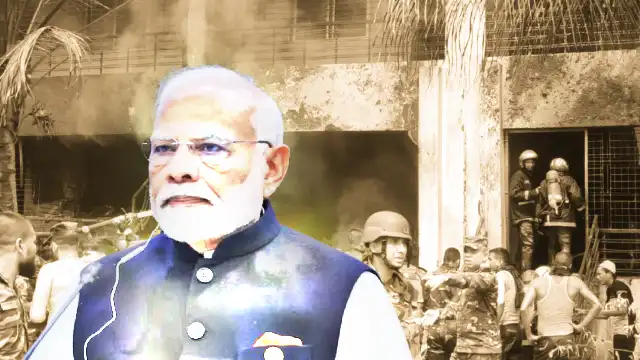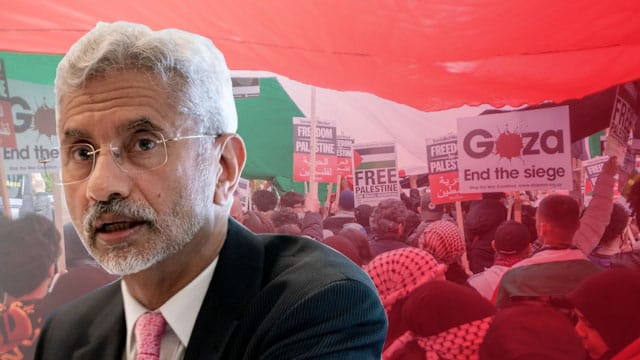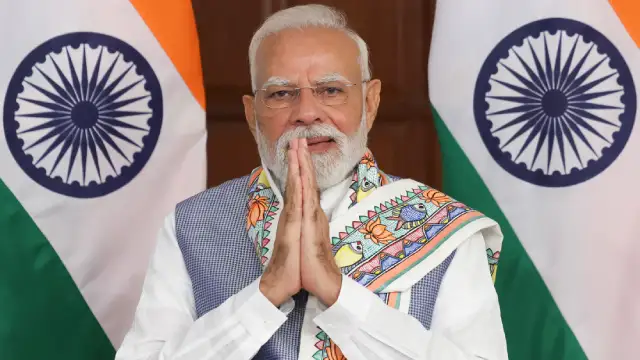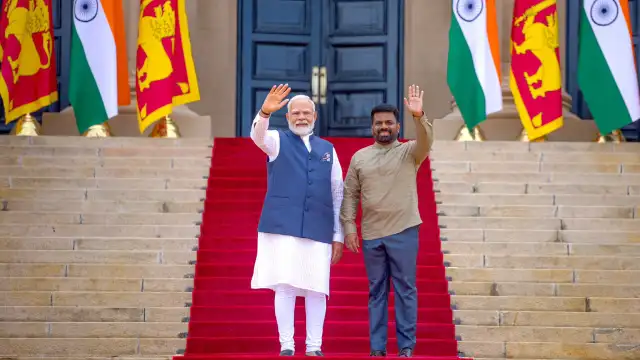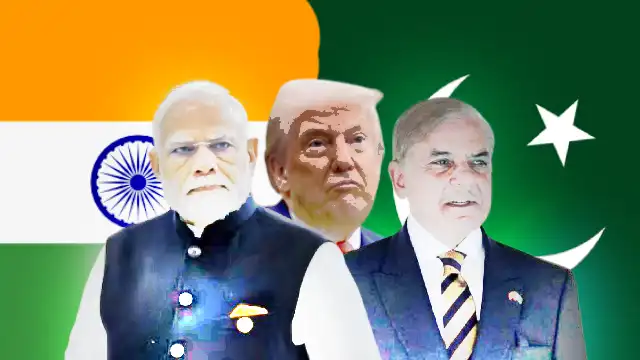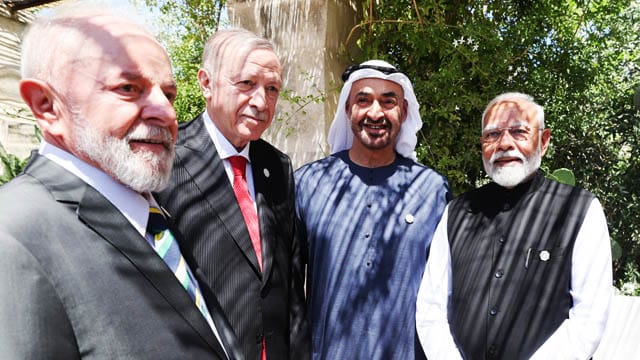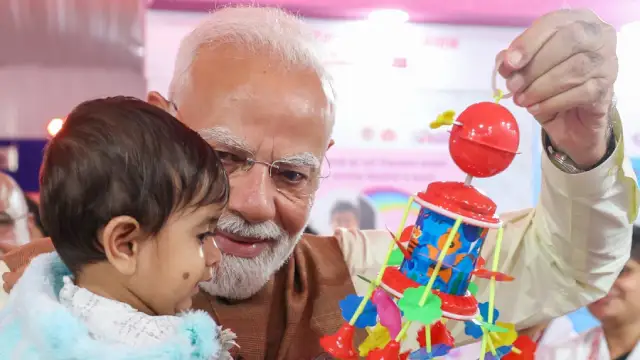On July 21st, a routine diplomatic gesture transformed into a revealing moment of regional discord in South Asia. When Indian Prime Minister Narendra Modi expressed condolences following a devastating fighter plane crash in Bangladesh’s capital, Dhaka, his social media followers seized the opportunity to express anti-Bangladesh sentiments that undermined his intended message of solidarity. The incident exposed the fragile state of India-Bangladesh relations and demonstrated how digital diplomacy can quickly spiral beyond government control.
Tragedy that sparked diplomatic confusion
The Bangladesh Air Force training jet, a Chinese-made F-7 BGI, crashed into Milestone College at 1.18pm local time on July 21st. The aircraft had malfunctioned shortly after takeoff, with the trainee pilot unable to regain control due to low altitude. At least 19 people died, including many students, while over 164 suffered injuries as flames and smoke engulfed the school campus.
Mr Modi responded swiftly to the tragedy. At 6.55pm IST, he posted on X (formerly Twitter): “Deeply shocked and saddened at the loss of lives, many of them young students, in a tragic air crash in Dhaka. Our hearts go out to the bereaved families. We pray for the swift recovery of those injured. India stands in solidarity with Bangladesh and is ready to extend all possible support and assistance.”
This message represented standard diplomatic protocol.
However, the responses it generated revealed the depth of anti-Bangladesh sentiment among Mr Modi’s online supporters, transforming a condolence into a platform for nationalist grievances.
Digital diplomacy goes awry
Between 1.31pm and 2pm UTC, Mr Modi’s followers flooded the replies with divisive comments that contradicted his message of solidarity. The responses followed several concerning patterns that exposed underlying tensions between the two nations.
Some of the users used the tempo of Bangladesh’s Hindu persecution to slam Mr Modi.
In Hindi, Krishan Jaddon criticised the prime minister, accusing him of staying quiet when “Jihadis in Bangladesh” were allegedly “killing Hindus and raping Hindu women”.
The most damaging responses invoked concepts of divine retribution.
Praveen Kumar, who tweets as @RigidDemocracy, stated: “Karma pays you back with cumulative interest. When the Air India place crashed in Gujarat, these Bangladeshi were celebrating and now see their Allah took revenge just in few weeks (sic).”
These vengeful sentiments, accompanied by crash wreckage images, completely undermined Mr Modi’s diplomatic intentions.
Some followers shared memes mocking the tragedy, with a user named Shilpa, who tweets as @shilpa_cn, commenting “Never trust Chinese goods!” alongside images of the wreckage.
Such responses escalated anti-Bangladesh sentiment while showing callous disregard for human suffering.
Historical context of strained relations
The toxic responses reflected deeper structural problems in India-Bangladesh relations.
India played a crucial role in Bangladesh’s 1971 liberation war, fostering decades of cooperation in trade, security and connectivity.
However, persistent tensions over water-sharing agreements, particularly the Teesta River dispute, India’s alleged neo-colonial domination over Dhaka, and border management issues have complicated the relationship.
The political upheaval following Sheikh Hasina‘s ouster in August 2024 marked a significant turning point.
Ms Hasina, widely seen as an Indian geopolitical asset, fled to India after mass protests against her 15-year rule.
Muhammad Yunus, a Nobel laureate, assumed leadership of an interim government seeking to recalibrate Bangladesh’s foreign policy.
This transition coincided with Bangladesh’s growing alignment with China.
The $24bn trade relationship between Dhaka and Beijing, along with increased Chinese military procurement, has heightened Indian concerns about regional influence.
China’s expanding presence in South Asia directly challenges India’s traditional dominance in the region, especially in the Bay of Bengal region.
Minority rights dimension
Many of Mr Modi’s followers referenced reports about attacks on religious minorities since Ms Hasina’s fall.
The Bangladesh Hindu Buddhist Christian Unity Council has documented hundreds of alleged incidents targeting minority communities.
These reports have become flashpoints in Indian domestic politics, where the ruling far-right Bharatiya Janata Party (BJP) and its parental body, the Rashtriya Swayamsevak Sangh (RSS), frequently highlight the plight of Hindus in neighbouring countries.
Since Ms Hasina’s ouster, the Hindutva-inclined Indian mainstream media ran a campaign on the alleged persecution of minorities, especially Hindus in Bangladesh.
Reports like this on East Post have tried to stress the facts and expose India’s state-sponsored misinformation campaign.
Yet, utilising the prevailing chaos, India’s BJP-RSS carried out large-scale Islamophobic propaganda online and offline, targeting Bangladesh and vilifying Bengali Muslims.
The BJP and the RSS’s campaign on purported Hindu persecution in Bangladesh paved the way to a large-scale persecution of Bengali-speaking people across the BJP-ruled states, including Delhi, Gujarat, Haryana, Maharashtra and Odisha.
Most Bengali Muslims, especially those from the working class, have been systematically labelled as “Bangladeshis” and then forcefully and illegally deported from India.
This campaign to launch a witch-hunt against one of India’s largest ethnic groups has become possible due to the BJP-RSS’s campaign against Bangladesh.
While international reports and media have repeatedly highlighted the growing incidents of state-sponsored Islamophobic bigotry in India, which repeatedly translates into anti-Muslim pogroms, the Indian mainstream media and the ruling Hindutva camp amplified Bangladesh’s alleged crimes against minorities.
India’s misinformation campaign on Bangladesh’s purported Muslim persecution not only fanned anti-India sentiments to a great extent in the South Asian country but also jeopardised the long-term security of its minority Hindus, whom the Islamist extremists started identifying with New Delhi.
While the hatred remains a constant factor between India and Bangladesh after Ms Hasina’s ouster, Mr Modi’s Hindutva camp started gloating every time a tragedy struck the neighbour.
Mr Modi’s message following the Bangladeshi training fighter plane crash in Dhaka provoked his supporters, who demand that his government only spew hatred against the neighbouring country.
However, using a tragedy involving student deaths to score political points about minority rights demonstrated how digital platforms can amplify hyper-nationalist sentiments beyond diplomatic control.
The angry responses from Mr Modi’s hardcore fans suggest that significant portions of the prime minister’s online followers view Bangladesh through an Islamophobic lens rather than humanitarian concern.
Geopolitical implications of Modi’s condolences over fighter plane crash in Dhaka
The trolling of Mr Modi, by his own followers, for his condolences to the bereaved families of the victims of the fighter plane crash in Dhaka, reveals the Frankenstein the BJP has raised in its backyard.
Mr Modi’s message aimed to position India as a supportive neighbour during Bangladesh’s difficult transition period.
It exemplifies India’s long-term foreign policy goals of reclaiming its lost position in the crucial neighbourhood.
However, his followers’ responses reinforced Bangladeshi perceptions of India as a regional bully, more interested in settling scores than offering genuine assistance.
For Bangladesh, already navigating delicate political transitions, such responses may strengthen arguments for closer ties with China.
Beijing’s expanding influence in South Asia benefits when India’s regional relationships deteriorate through hyper-nationalist rhetoric and Islamophobic hate mongering.
The timing proves particularly unfortunate given South Asia’s current geopolitical flux.
Emerging powers and realigning alliances require careful diplomatic management, yet digital platforms increasingly allow uncontrolled voices to shape international perceptions.
And Mr Modi can’t escape the responsibility. He and his party have benefited digitally from the hate-mongering done by his followers online.
Diplomatic damage control
The episode demonstrates how social media can undermine carefully crafted diplomatic messages if far-right forces utilise troll forces for myopic political gains.
Government communications teams must now consider not only their intended audience but also how their supporters might weaponise official statements to peddle vested propaganda.
Mr Modi’s condolences over the fighter plane crash in Dhaka, while apparently well-intentioned, inadvertently became a flashpoint for underlying tensions between the two countries.
The responses revealed the limits of top-down diplomatic messaging when grassroots sentiment runs counter to official policy objectives.
This dynamic creates particular challenges for leaders like Mr Modi, whose political success partly depends on mobilising hyper-nationalist and Islamophobic sentiments.
The same supporters who boost his domestic political standing can damage his international diplomatic efforts when their enthusiasm translates into inflammatory online rhetoric.
Lessons for digital diplomacy
The controversy surrounding Mr Modi’s condolence message following the fighter plane crash in Dhaka offers several insights for diplomatic practice in the digital age.
Governments can no longer assume that official statements will be received as intended, particularly when domestic political dynamics create incentives for inflammatory responses.
The far-right has unleashed a digital Frankenstein, which won’t take much time to consume its own towering figures.
Mr Modi faces annual backlash from the hardcore Hindutva fanatics whenever he wishes the country’s Muslims on Eid and other festivals or highlights anything related to Islam positively.
His government’s attempts to call for an end to the Israel-Iran conflict, due to its strong ties with both countries, suffered ignominy when Mr Modi’s supporters started openly cheering for Israeli aggression on Iran.
Mr Modi’s supporters also violated India’s foreign policy stance on a two-state solution to the Israel-Palestine conflict, and emboldened by the prime minister’s open support for Israel during the beginning of the genocidal aggression on Gaza in October 2023, they have been unapologetically jeering the massacre of civilians.
Keeping these in view, Mr Modi’s government, which has been censoring the Opposition digitally and the critical press, must take appropriate steps to mitigate online diplomatic risks and avoid embarrassment.
Join our channels on Telegram and WhatsApp to receive geopolitical updates, videos and more.

